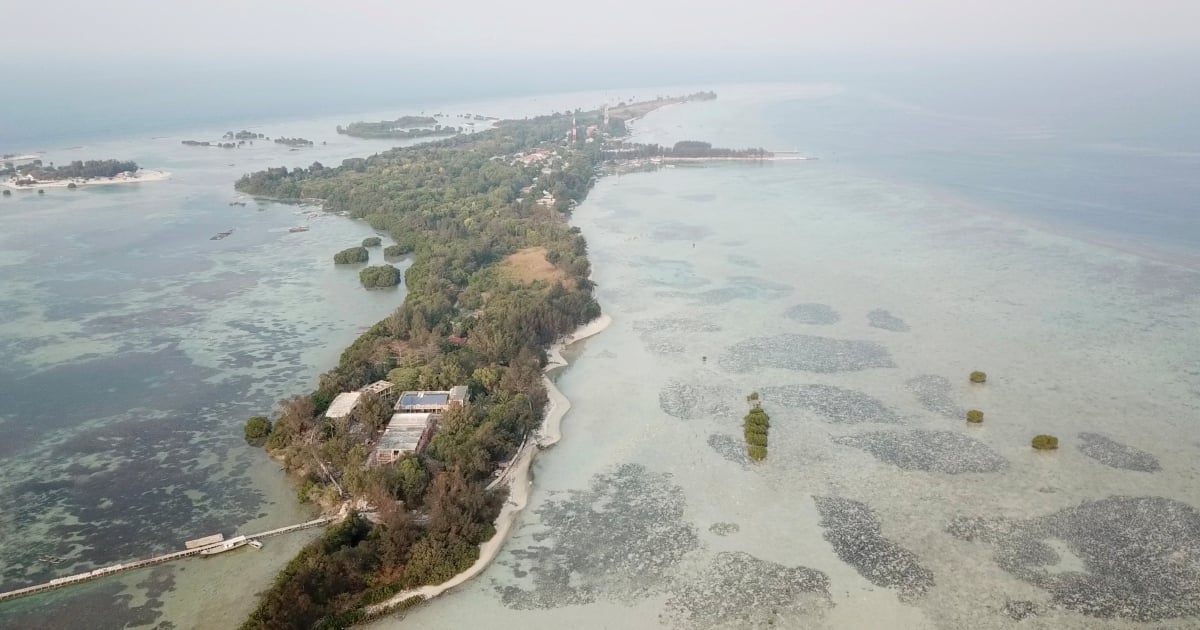ON July 23, the International Court of Justice, the world’s highest court, ruled that those who are harmed by climate change may be entitled to “full reparation”.
That is exactly what four Indonesians from Pulau Pari are seeking from Holcim, the world’s biggest cement producer, headquartered in Zug, Switzerland, though their case began before the ICJ’s ruling.
According to news agency AFP, two of the four plaintiffs are in Zug to take part in a preliminary hearing to determine whether or not the court will consider their complaint.
The four say that the 42ha Pulau Pari, part of the chain of islands called Thousand Islands, is threatened with disappearance by rising sea levels caused by greenhouse gas emissions.
If environmentalists are right, that could happen as early as 2050. The news agency quotes environmentalists as saying that cement production is responsible for around eight per cent of global CO2 emissions and allege that Holcim figures as one of the largest such emitters among all companies worldwide.
This is the pith and marrow of the plaintiffs’ case. They are seeking 3,600 Swiss francs each from Holcim for damages, protection measures such as constructing breakwater barriers and reduction in emissions.
The damages are based on the alleged emissions contributed by Holcim’s cement production. Holcim doesn’t operate in Pulau Pari, though it operated in Indonesia until 2018 when it sold its operations to a local cement producer.
Holcim’s argument is that it is “deeply committed to taking action on climate”, but maintains that “the question of who is allowed to emit how much CO2” should be “a matter for the legislature and not a question for the civil court”, AFP quotes the company as saying. Whatever the decision the Zug court makes, the four won’t be the last plaintiffs to take industrial giants to court.
More will head to courts around the world seeking to hold fossil-fuel firms responsible for climate-related loss and damage. The ICJ decision will certainly create a surge in such climate change litigation.
Many dismiss the ICJ’s ruling as a non-binding advisory opinion. They cannot be more wrong. Anticipating such careless disregard, the full 15-member court pointed out that its ruling is based on existing international law, cross-referencing the jurisprudence of the International Tribunal of the Law of the Sea, the Inter-American Court of Human Rights and the European Court of Human Rights, as well as years of domestic climate-related cases across the globe.
Expectedly, big fossil fuel-producing countries were urging the court to ringfence their climate-related obligations within the Paris Agreement and related treaties.
This the ICJ firmly refused to do, saying climate treaties do not exclude a state’s obligations under general international law, meaning even if countries choose not to be a party to climate treaties or even withdraw from them, they will be caught by general international law and customary norms.
As Margaretha Wewerinke-Singh, who acted as lead counsel for Vanuatu in the ICJ case, writes in the Columbia Law School blog that the July 23 ruling will be remembered as the moment international law rose to the climate challenge.
It is now the moment for the political will of nations to rise to the climate challenge.
© New Straits Times Press (M) Bhd






